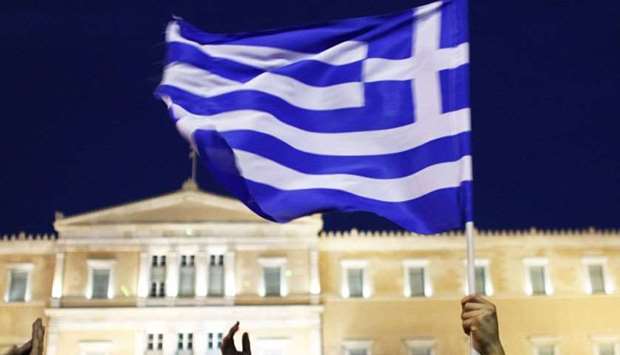EU officials praised Greece on Monday for successfully concluding its third and final bailout programme, ending eight years of international loans aimed at lifting the country out of its debt crisis and keeping it in the eurozone.
‘You did it!’ European Council President Donald Tusk wrote on Twitter. ‘Congratulations to Greece and its people on ending the programme of financial assistance. With huge efforts and European solidarity you seized the day.’ ‘For the first time since early 2010, Greece can stand on its own feet,’ said Mario Centeno, the head of the Eurogroup of eurozone finance ministers, who also oversee the bailout fund for the 19-country currency bloc.
Centeno praised the ‘extraordinary effort of the Greek people,’ while noting that it had taken ‘much longer than expected’ for the country to recover from its crisis.
However, the bailout fund - the European Stability Mechanism (ESM) - also warned that ‘significant challenges’ remain for Athens.
Greece must continue efforts to ‘liberalize the economy, create an effective public administration, as well as a business-friendly environment,’ the ESM wrote, while noting that unemployment remained very high, standing at 19.5 per cent in May.
Outstanding reforms include potentially unpopular steps to modernize Greece's pension and health care systems, as well as further privatization efforts.
No celebrations are expected on Monday - the final day of the programme - although Greek Prime Minister Alexis Tsipras is due to mark the occasion with a highly anticipated speech.
Following a financial meltdown in 2010, the European Union and the International Monetary Fund saved Greece from bankruptcy with a total of 289 billion euros (330 billion dollars) in credit.
In 2015, Greece and its European creditors agreed to a third bailout package worth up to 86 billion euros under the ESM.
But the bailouts were granted on the condition that Athens implement strict austerity measures. In the wake of the crisis, average Greek income dropped by one quarter.
After the crisis broke, the nation's gross domestic product fell from 354 billion dollars in 2008 to 194 billion in 2016.
Financial markets over the coming months will decide whether the end of the final bailout programme means the Greek financial crisis is over.
As security, Athens has a capital buffer of 25 billion euros, meaning Greece can fund itself for the next two years, regardless of how interest rates affect loan repayments.
Greece will remain subject to EU surveillance, with the European Commission due to issue quarterly reports on the country's economic, fiscal and financial situation, as well as its continued adherence to post-bailout commitments.

